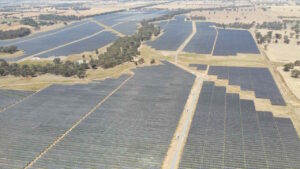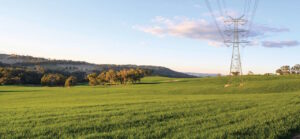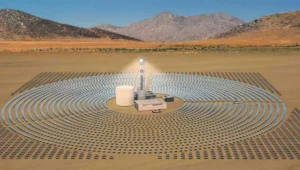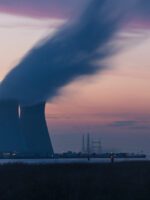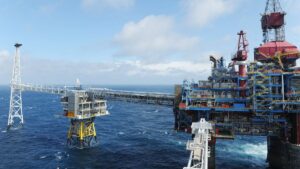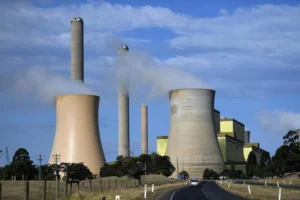AGL Energy will provide customers the option of offsetting the emissions from their energy use, as the company looks to keep pace with customer demands to fast-track the clean energy transition even as it sticks to its plans to keep its last coal fired generator open until 2048.
From 1 July, AGL’s electricity plans will include an option for all electricity sold to be offset and certified as a carbon neutral option, with the company seeing it as a step towards meeting a company target of zero net emissions by 2050. It is currently the biggest emitter in the country. AGL hopes to expand the carbon neutral options to the rest of its products, including gas and telecommunications by the end of the next financial year.
“By the end of FY21 a carbon neutral option will be available on all AGL products – be they electricity, gas or telecommunications – giving all of our customers choice for the cleaner and more sustainable options many are seeking when it comes to their essential services,” AGL CEO Brett Redman said.
“Many of our customers share our interest in shaping a more sustainable future. So, it’s important to provide them with options and that’s what our new carbon neutral product does – regardless of whether they are a family, a small business or a large commercial or industrial customer.”
“To support this new product into the future AGL has embedded changes in our policies, supply chain and systems to ensure a carbon neutral option is offered every time a customer chooses an AGL electricity, gas or telecommunications product,” Redman added.
The AGL CEO indicated that the carbon neutral option would cost around $1 per week for the average residential customer and $4 per week for small-businesses. AGL had secured an agreement to source offsets from the Westmere Regeneration Project in NSW as well as a cooking stove replacement project in Kenya.
While AGL has expanded its investments in wind and solar generation projects, it also ranks as Australia’s largest coal power station operator, which still represents the bulk of the company’s generation portfolio.
AGL operates some of Australia’s largest coal-fired generators, including the 2,640MW Bayswater and the 1,680MW Liddell power station that run on black coal. In Victoria, AGL also operates the 2,225MW brown coal fuelled Loy Yang power station.
This portfolio saw AGL Energy rank overwhelmingly as Australia’s largest greenhouse gas emitter, responsible for 42.7 million tonnes of carbon dioxide equivalent emissions in 2018-19, more than double the amount of emissions released by EnergyAustralia, who ranked second.
AGL expects to see each of these power stations close by 2048, with the Liddell power station scheduled to close in 2023.
Shareholder campaign group the Australasian Centre for Corporate Responsibility (ACCR) said that it would continue to pressure AGL to cut its contribution to global greenhouse gas emissions.
“AGL will continue to feel investor pressure until it brings forward the closure of its coal fired power stations. Closing Bayswater in 2035 and Loy Yang in 2048 at their use-by-dates is not consistent with the Paris Agreement – with which AGL claims it is aligned,” ACCR director Dan Gocher said.
“AGL has made no new commitments other than offering carbon offsets to its retail customers. Offsets are no substitute for simply not producing emissions in the first place.
To help mitigate the emissions from these power stations, AGL will source carbon offsets from a mix of sources and under a variety of accreditation schemes, with the company saying that it had already acquired carbon offsets from Australian and overseas offset projects.
“Whilst there is a wide range of carbon offsets available to purchase to be carbon neutral, ranging in quality and price, we recognise that our customers want a quality product at an affordable price,” AGL said in a statement.
“To ensure quality we only purchase eligible carbon offsets in Australia and overseas that meet the integrity requirements under the Climate Active Carbon Neutral Standard, which is backed by the Australian Government.”
In its latest ‘climate statement’, AGL said that it was committed to supporting the development of carbon markets in Australia, and including through the offering of carbon neutral electricity products, but stopped short of making any further commitments around the closure of its coal fleet.
“As Australia’s largest and oldest integrated electricity generator and retailer, we play a vital role in Australia’s energy market and the wider transition,” Redman added.
“Not only do our coal and gas fired generators ensure Australia’s lights remain on, they provide the financial strength for AGL to progress the transition.”
AGL said that it would continue to invest in additional renewable energy capacity, following on from its recent investments in the 199MW Silverton wind farm and the 453MW Coopers Gap wind farm which is expected to be fully commissioned before the end of the year.
“We accept the science of climate change; the more difficult aspect that needs to be addressed is how we manage the transition in a way that reduces emissions and supports our customers and the community.”
“I believe that Australia and Australians have the capability and the capacity to achieve transition in our energy market in a way that drive us forward, unlocks the potential of new technology and creates new industries and opportunities.”
A growing number of electricity retailers have begun to incorporate carbon neutral options into their energy products, alongside purchases of renewable energy through GreenPower, with some retailers like Powershop and EnergyAustralia having incorporated offsets, generally sourced from cheaper overseas programs, as a standard part of their electricity sales.
AGL CEO Redman said by allowing its customers the ability to opt-in to its carbon neutral scheme it was possible to balance customer choice with affordable offsets that still maintained a degree of environmental integrity.

